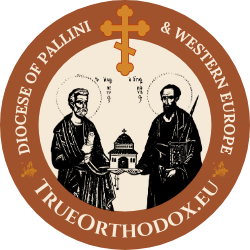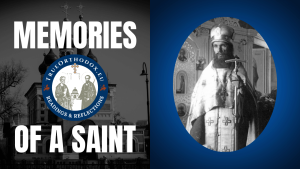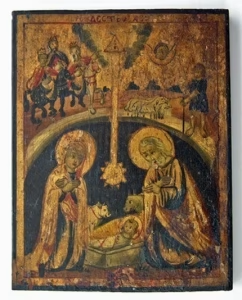Saint Panteleimon the Great Martyr and Healer – The Physician of Soul and Body

On July 27, the Holy Orthodox Church celebrates the memory of Saint Panteleimon the Great Martyr and Unmercenary, one of the most beloved and wonderworking saints in the Christian world. His name means “all-merciful,” and indeed, his life and martyrdom bear witness to the mercy of Christ which heals both body and soul.
Born in Nicomedia during the reign of Emperor Maximian (late 3rd century), the saint was originally named Pantoleon, meaning “in all things like a lion.” He was the son of a pagan father, Eustorgios, and a Christian mother, Euboula. It was his holy mother who first taught him the Christian faith, but after her early death, he was raised in paganism and trained as a physician.
As a young man of great intelligence and compassion, Pantoleon quickly gained renown for his medical skill. He studied under the imperial physician and became so prominent that he was appointed doctor to the Emperor himself. Yet divine providence had not finished forming him. He came to know the holy priest Hermolaos, who instructed him fully in the Orthodox faith and ultimately baptized him, giving him the name Panteleimon—a prophetic name that reflected his future calling as a healer through mercy.
After his baptism, Saint Panteleimon began to practice medicine not for gain, but for the glory of God. He healed all who came to him—especially the poor—without demanding payment, thus becoming one of the most well-known Holy Unmercenaries (Άγιοι Ανάργυροι). Through his prayers, even the most incurable diseases were healed, and miracles began to multiply around him. One of the first signs of his sanctity was raising a blind man back to sight in the name of Christ—after the pagan doctors had failed to help him.
This miracle, however, drew the jealousy of other physicians and suspicion from the imperial court. When it was revealed that Panteleimon was a Christian, he was brought before Emperor Maximian. Offered wealth and favor if he would renounce Christ, he instead confessed his unshakable faith. Many tortures followed: he was burned, stretched on the rack, thrown into molten lead, cast into the sea with a stone around his neck, and exposed to wild beasts—all of which failed to harm him. Like the Three Youths in the furnace or Daniel in the lion’s den, Panteleimon was preserved by divine grace.
Finally, it was decided he would be beheaded. But even then, a miracle occurred: when the executioner struck his neck, the sword bent as if it were made of wax, and the saint calmly prayed, asking the Lord to receive his soul. Only after he gave the blessing for his martyrdom did the executioner succeed, and from the wound flowed not blood, but milk—a sign of spiritual purity and incorruption. A voice from heaven declared him blessed, and his body became a source of healing relics for generations.
To this day, Saint Panteleimon is invoked as a powerful intercessor for the sick, especially those suffering from grave or incurable illnesses. His holy relics are found in many places, but most famously at Mount Athos, in the Russian monastery that bears his name, and where countless healings have been reported through his prayers.
Saint Panteleimon shows us that medicine without Christ is incomplete, and that the true physician is the one who heals not only the body but also leads the soul to salvation. In a world that often places its trust in human ability, the witness of this great martyr reminds us that “with God, all things are possible” (Matthew 19:26).
Let us therefore entrust our pains and wounds—physical, emotional, and spiritual—to the Lord through the prayers of His faithful servant, Saint Panteleimon.
Holy Great Martyr and Healer Panteleimon, pray to God for us!








